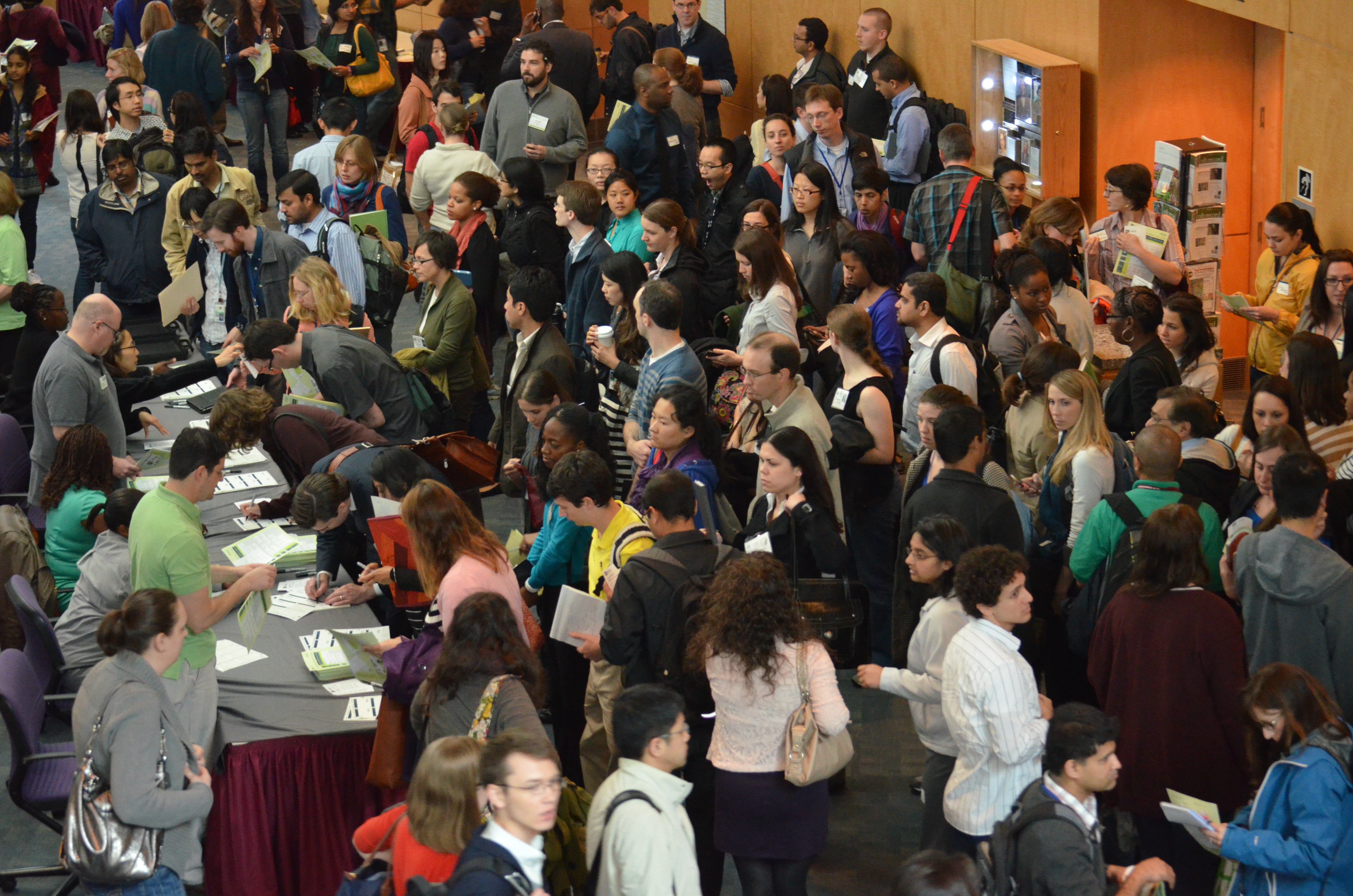A Decade and Counting, the NIH Career Symposium Celebrates 10 years.
On May 11, 2017 the OITE will again host the NIH Career Symposium! This year is special…we will celebrate its 10th anniversary. This event is one of our favorites, it highlights the multitude of career opportunities for biomedical scientists—and in the past decade over 7500 graduate students, postdocs and fellows have attended the event to propel their own careers. Our invited speakers tell us about their career paths, how they got their jobs, and advice to attendees as they plan their careers.
. 
The event is open and free to everyone, both NIH and non-NIH folks. It is intended for doctoral degree students and recipients. Just register to let us know you are coming!
We have a blog on how to navigate the day here: Getting the Most Out of Your NIH Career Symposium Experience and here: Career Symposium 2015 – #careersymp (Note our twitter handle will stay the same this year if you would like to follow along!)
We could not run the career symposium without the dedication of the over 700 speakers that have taken time away from their jobs to share their career insights. We have learned that many careers are a function of planned happenstance (FYI: never let a speaker tell you luck lead their job search). This year 99% of the speakers are NIH alumni.
We are also grateful to the over 200 postdocs and grad students who have helped plan the event since 2008. 125 of these former committee members are now alumni, in all career sectors (23% are in academics, 41% are in government, 34% are in industry and 1% are in non-profits). Committee members have blogged on how the career symposium has helped them on their personal career paths: Serving on a Committee: Make the Most of the Opportunity (watch for the call in September if you would like to help plan for the next event)
Since 2010 we have created a newsletter to share the highlights of each panel—each article was written by a grad student or postdoc. Read the synopses here: https://www.training.nih.gov/nih_career_symposium. We culled out what we think are the best pieces of advice from the past decade of the NIH Career Symposium:
- It’s not luck—you have to work at finding a job to make sure you are in the right time at the right place.
- Sometimes you have to take a leap of faith that all is going to work out.
- Any career you chose is the right decision, and is therefore not an alternative, may be the most liberating thing you do as postdoc.
- When choosing your career path, it is important to remember that the only opinion that matters here is yours.
- Good communication skills will not only advance your career in science writing but will also provide opportunities within science policy, grant administration, or to oversee research at universities.
So, we hope you can join us on May 11 for the NIH Career Symposium. It just might be the catalyst to get you to the next stage of your career!

